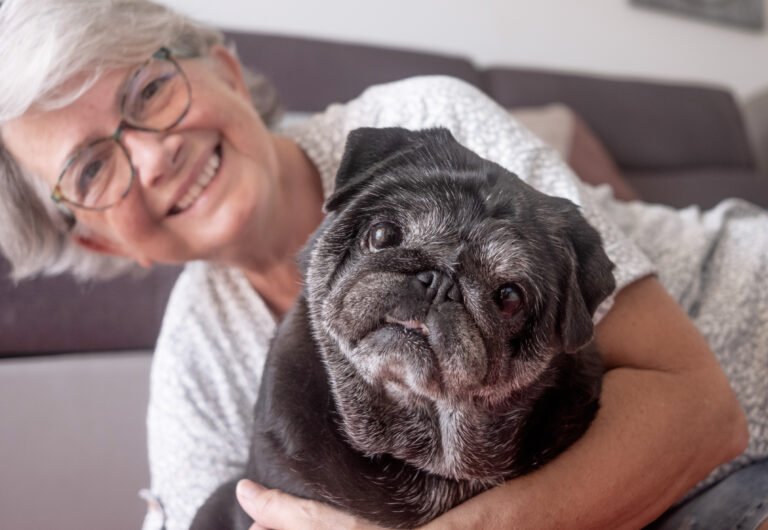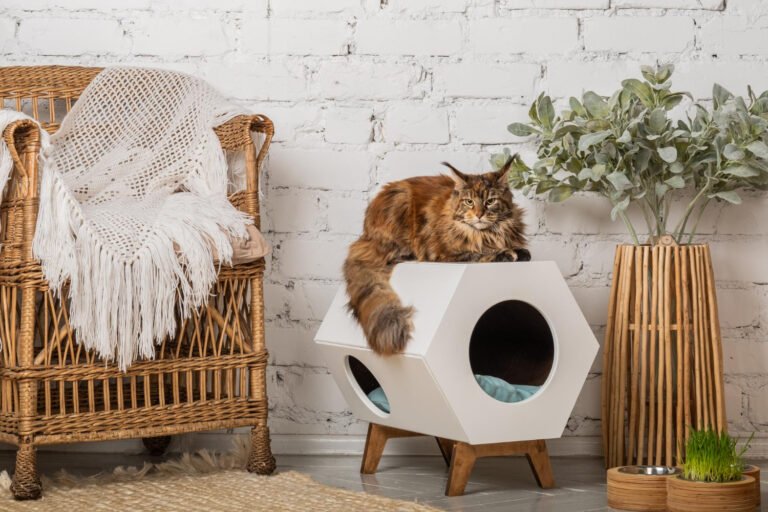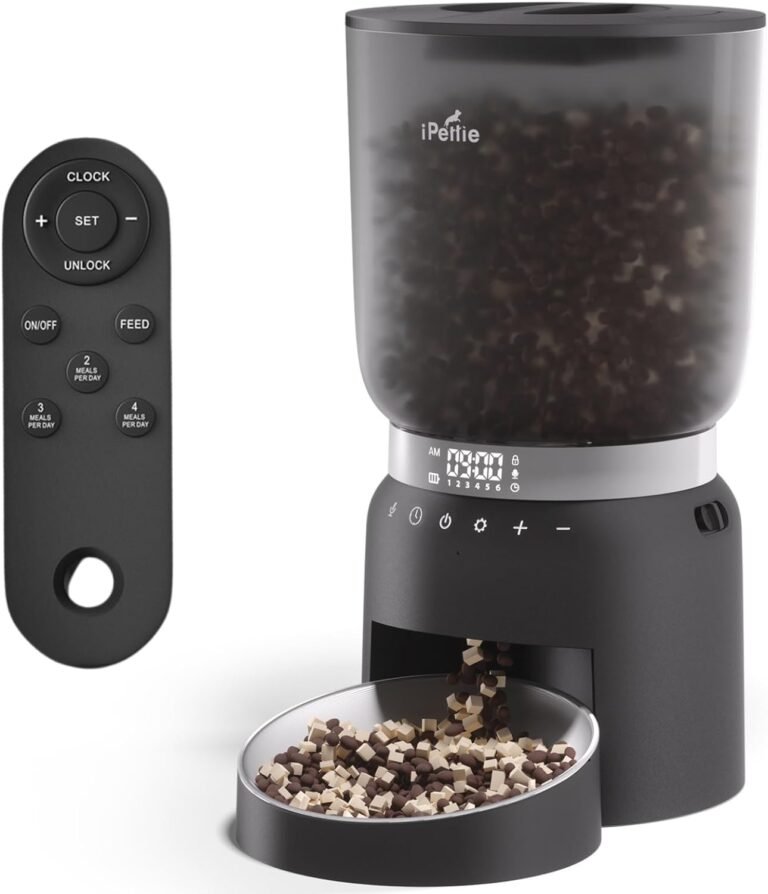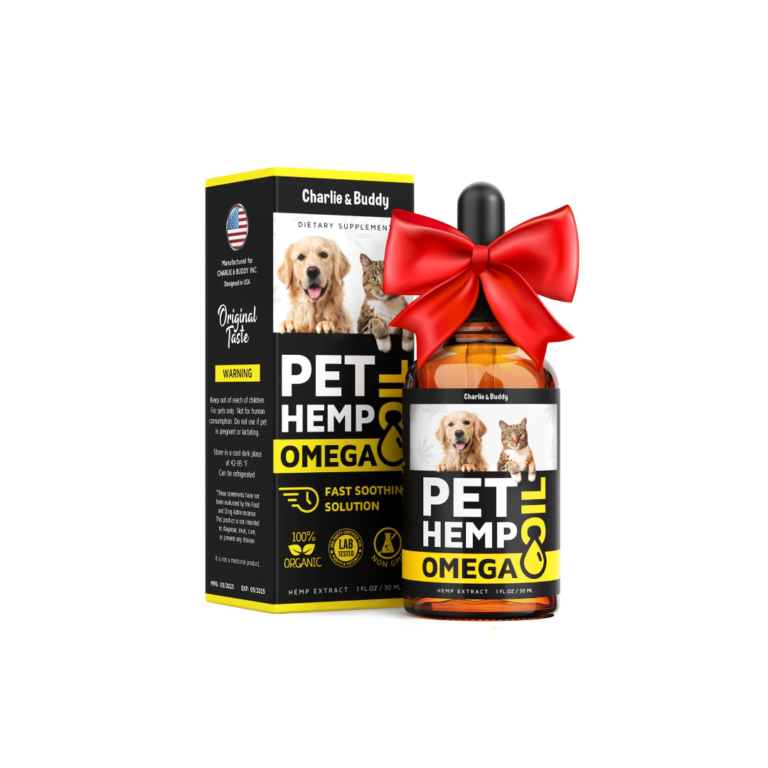Aging Pets: How to Care for Your Senior Companion
As beloved companions age, our furry friends transition into their senior years, bringing along a set of unique needs and considerations. While the love and joy they bring remain constant, caring for senior pets requires attention to different aspects of their well-being. From physical health to emotional support, here’s a comprehensive guide on how to ensure the comfort and happiness of your aging pet.
Key Takeaways
- Regular veterinary check-ups are crucial for senior pets to detect potential health issues early.
- Provide a nutritionally balanced diet tailored to the specific needs of senior pets.
- Encourage gentle exercise to maintain mobility and mental stimulation.
- Create a comfortable and safe environment for your senior pet.
- Regular dental care is important to prevent dental issues in senior pets.
Understanding the Aging Process in Pets

Common Signs of Aging in Pets
Recognizing the signs of aging in your pet is the first step in providing appropriate care. While it’s natural for your pet to slow down as they age, there are specific indicators that might require attention.
Here are a few signs that your senior pet may have a health issue impacting their well-being:
- Changes in behavior: An increase in rest or changes in activity levels can be signs of aging, but sudden, significant shifts should be evaluated.
- Mobility issues: Arthritis and other joint problems are common in senior pets and can affect their mobility and comfort.
- Weight changes: Senior pets may experience changes in weight, either gaining or losing pounds. These changes may indicate underlying health issues.
- Dental problems: Dental disease becomes more prevalent in older pets and can lead to discomfort and difficulty eating.
- Cognitive decline: Changes in your pet’s behavior, memory, or awareness may be signs of cognitive decline.
Taking note of these signs and seeking veterinary care when necessary can help ensure your senior companion’s well-being and quality of life.
Health Issues to Watch Out for in Senior Pets
Regular veterinary check-ups are crucial for senior pets. Just like humans, older animals are more prone to health issues such as arthritis, dental problems, organ dysfunction, and cognitive decline. Frequent check-ups can help detect and manage these issues early on, ensuring a better quality of life for your furry companion. Additional tests such as blood work, urinalysis, and imaging may be needed to monitor organ function, identify diseases, or manage chronic conditions. Some senior pets might require medications or supplements to manage arthritis, cognitive decline, or other health concerns. It’s important to provide your senior pet with the necessary care and attention to ensure their well-being and comfort in their golden years.
Importance of Regular Veterinary Check-ups for Aging Pets
Senior dogs greatly benefit from regular veterinary check-ups. These visits play a crucial role in ensuring their well-being as they age gracefully. Through routine examinations, veterinarians can detect and address potential health problems early. This includes administering necessary vaccinations and implementing effective parasite control measures. Such proactive and preventive care measures not only contribute to maintaining your beloved companion’s quality of life but also enable the timely detection and management of age-related issues. Regular check-ups are essential for early detection of potential health problems and for providing the necessary care to keep your senior pet healthy and happy.
Creating a Comfortable Environment for Your Senior Companion

Adapting Your Home for Aging Pets
Creating a comfortable environment involves considering various factors such as temperature control, safety measures, accessible living spaces, and emotional support. Adapting their surroundings to cater to their specific needs ensures that senior pets can navigate their daily lives comfortably and happily as they age gracefully.
Signs of Aging and Health Issues
Changes in Behaviour
Pay attention to any changes in behaviour or routine. Increased lethargy, reluctance to play, excessive vocalisation, or altered eating habits could indicate underlying health issues that require prompt attention. Senior pets might become less active and show decreased interest in
Providing Proper Bedding and Resting Areas
A comfortable environment is crucial for senior pets, especially when it comes to providing proper bedding and resting areas. As pets age, they may struggle to get comfortable curled up on the floor, as the hard surface can be unforgiving on their sore bodies. It’s important to have a thick high-quality bed in a few of their favorite places, allowing them to get the restorative sleep they need and stick to their preferred routine. If your beloved pet has joint issues like arthritis, consider an orthopedic bed or one with memory foam for joint support. Additionally, a heating pad or heating blanket can provide extra comfort during colder months.
Creating a comfortable environment for your senior pet involves considering various factors such as temperature control, safety measures, accessible living spaces, and emotional support. Here are some key reasons why a comfortable environment is essential:
- Joint and Mobility Support: Senior pets often experience arthritis or other joint issues, and providing soft bedding or orthopedic mattresses can alleviate pressure on their joints, reducing pain and discomfort.
- Temperature Regulation: Older pets may struggle with regulating their body temperature, so ensuring a comfortable ambient temperature in their living space is important for their well-being.
- Stress Reduction: Senior pets can be more sensitive to changes in their environment, so creating a calm and consistent space helps reduce stress and promotes overall well-being.
Remember, a comfortable environment significantly enhances the quality of life for senior pets, allowing them to live their golden years in a peaceful, comfortable, and supportive setting surrounded by love and care.
Ensuring Easy Access to Food and Water
For our senior pets, something as simple as accessing their food and water can become a challenge. The struggle to navigate from their bed to the water bowl or to the door for a washroom break can erode their confidence and discourage them from trying. To help them navigate their environment comfortably and promote relaxation and refueling, there are a few improvements we can make:
-
Anti-slip Surfaces & Accessibility: Adding carpets, mats, and anti-slip surfaces in their usual routes, near their food and water bowls, and on slippery floors can make a big difference. For cats, providing more frequent perches and keeping necessities at ground level can help.
-
Blocking Off Dangerous Areas: As our senior pets may experience mental or physical decline, it’s important to block off areas that could be potentially dangerous. This includes using gates to block stairways and providing ramps for easy access in and out of the house. Checking for hazards like firepits, pools, and window wells is also crucial.
-
Extra Grip and Traction: During slow strolls, we may notice that our senior pets could use some extra grip to prevent straining. Paw grips and booties can provide additional traction and support.
Remember, as a guardian of senior pets, it’s important to take care of ourselves too.
Nutrition and Diet for Senior Pets

Choosing the Right Senior Pet Food
A pivotal role in a senior pet’s health. As animals age, their nutritional requirements change. Specialised senior pet foods can provide the necessary nutrients to support joint health, digestion, and maintain a healthy weight. Encouraging adequate water intake is also crucial for senior pets, as they might become less efficient at regulating their hydration levels. There are numerous reasons why senior pets may require different food including: As pets age, their metabolism slows down. They may become less active, leading to a decrease in calorie requirements. Senior pet foods are often
Managing Weight and Portion Control
Obesity is a prevalent concern among older dogs, predisposing them to a myriad of health issues, including joint problems, heart conditions, and decreased mobility. Portion control emerges as a crucial aspect in preventing weight-related complications in senior dogs. By carefully regulating portion sizes and feeding schedules, pet parents can effectively manage their furry companion’s weight. It’s essential to factor in their activity level, metabolism changes, and any specific health conditions when determining the appropriate portion sizes. Consultation with a veterinarian aids in devising a feeding plan that caters to your senior dog’s unique needs, ensuring they receive adequate nutrition without overindulging.
Supplements for Joint Health and Mobility
As your pet ages, it’s important to prioritize their joint health and mobility. Aging can bring about conditions like arthritis and reduced mobility, impacting the joy of play and daily activities. To support your senior companion, consider incorporating a joint health supplement into their routine. ThorneVet’s Joint Support Formula (formerly Arthroplex) is a great option that helps optimize the normal function of joints and muscles. It provides essential nutrients and botanicals that are necessary for creating collagen, repairing damage, and maintaining a healthy inflammatory response. With ingredients like glucosamine, chondroitin, and MSM, this supplement promotes flexibility and alleviates discomfort associated with arthritis and aging. By including a joint health supplement, you can help your pet maintain their mobility and enjoy an active lifestyle.
Exercise and Mental Stimulation for Aging Pets

Low-Impact Exercise Options for Senior Pets
While senior pets may not have the same energy levels as before, regular exercise is still essential for maintaining mobility and a healthy weight. Tailor exercise routines to accommodate their abilities, opting for gentle activities like short walks or interactive play sessions. Mental stimulation through puzzles and games can also help keep their minds sharp and engaged as cognitive function can decline in older pets. Exercise is still important for senior pets, but it may need to be modified to accommodate their reduced energy levels and potential mobility issues. Some senior pets might benefit from ramps, stairs, or orthopaedic beds to assist with mobility and alleviate joint pain.
Engaging in Interactive Play and Puzzle Toys
As your pet enters their senior years, keeping their minds active becomes imperative for their overall well-being. Engaging them in mental exercises is a wonderful way to stimulate their cognitive abilities. Introduce a plethora of interactive toys and engaging puzzle feeders specifically designed to challenge and entertain your senior pet’s intellect.
Interactive Toys: Delve into a world of toys crafted to ignite your pet’s curiosity and problem-solving skills. Toys that dispense treats or require manipulation to reveal hidden surprises offer mental stimulation while providing an enjoyable activity.
Puzzle Feeders: Incorporate puzzle feeders into meal times. These ingenious contraptions not only slow down meal consumption but also encourage mental engagement as your furry friend works to retrieve their meal from the puzzle. Encouraging mental exercises through these tools not only keeps your senior pet’s mind sharp but also fosters a sense of accomplishment and fulfillment in their daily routine.
Quality Time: The Essence of Bonding
Spending quality time with your senior pet is crucial for their emotional well-being. Engaging in interactive play and puzzle toys not only provides mental stimulation but also strengthens the bond between you and your pet. Take the time to play with them, challenge their minds, and reward their efforts. Your pet will appreciate the attention and love, and you will create lasting memories together.
Keeping Your Senior Pet’s Mind Sharp
While senior pets may not have the same energy levels as before, regular exercise is still essential for maintaining mobility and a healthy weight. Tailor exercise routines to accommodate their abilities, opting for gentle activities like short walks or interactive play sessions. Mental stimulation through puzzles and games can also help keep their minds sharp and engaged as cognitive function can decline in older pets. Exercise is still important for senior pets, but it may need to be modified to accommodate their reduced energy levels.
Maintaining Dental Health in Senior Pets

Importance of Regular Dental Care
Maintaining good dental hygiene is essential to prevent various dental problems that can affect senior pets. Dental problems are common among senior pets and can lead to discomfort or difficulty eating. One of the most common dental issues in senior pets is periodontal disease, characterized by inflammation and infection of the gums and supporting structures of the teeth. This condition can lead to tooth loss, pain, and even systemic health problems if left untreated. Implementing a dental home care routine is crucial. This includes regular brushing using pet-specific toothpaste and toothbrushes, dental chews or toys, and dental diets recommended by veterinarians. Regular veterinary check-ups are also crucial to prevent dental issues and maintain oral health. By staying proactive and taking care of your senior pet’s dental health, you can ensure their overall well-being and comfort in their golden years.
Brushing Your Senior Pet’s Teeth
Maintaining good dental hygiene is essential to prevent various dental problems that can affect senior pets. Regular dental checkups and professional cleanings are crucial to prevent issues and maintain oral health. One of the most common dental issues in senior pets is periodontal disease, characterized by inflammation and infection of the gums and supporting structures of the teeth. This condition can lead to tooth loss, pain, and even systemic health problems if left untreated. Implementing a dental home care routine is crucial. This includes regular brushing using pet-specific toothpaste and toothbrushes, dental chews or toys, and dental diets recommended by veterinarians.
Alternative Dental Care Options
One of the most common dental issues in senior pets is periodontal disease, characterized by inflammation and infection of the gums and supporting structures of the teeth. This condition can lead to tooth loss, pain, and even systemic health problems if left untreated. Implementing a dental home care routine is crucial. This includes regular brushing using pet-specific toothpaste and toothbrushes, dental chews or toys, and dental diets recommended by veterinarians.
Managing Chronic Conditions in Senior Pets

Understanding Common Chronic Conditions in Aging Pets
As pets age, they may develop chronic conditions that require ongoing management and care. These conditions can impact their overall well-being and quality of life. It’s important to be aware of the common chronic conditions that affect senior pets so that you can provide the necessary support and treatment. One such condition is arthritis, which is characterized by inflammation and joint stiffness. Arthritis can cause discomfort and pain, affecting your pet’s mobility. Regular moderate exercise and maintaining a healthy weight can help manage its symptoms.
Another common chronic condition in aging pets is dental disease. Older pets are often prone to dental diseases, including periodontal disease and tooth loss. Regular teeth cleanings at the veterinarian’s office can help prevent and treat these issues. Additionally, cognitive decline is another condition that can affect senior pets. It’s important to monitor your pet’s cognitive function and seek veterinary care if you notice any changes in their behavior or mental abilities.
To ensure the well-being of your senior companion, it’s crucial to schedule regular veterinary check-ups. These check-ups can help detect and manage chronic conditions early on, leading to a better quality of life for your pet. Your veterinarian may recommend additional tests, such as blood work and imaging, to monitor organ function and identify any underlying diseases. Some senior pets may require medications or supplements to manage their chronic conditions. Providing proper nutrition is also essential for senior pets, as their dietary needs change with age. Specialized senior pet foods can provide the necessary nutrients to support their overall health and well-being. Lastly, creating a comfortable and safe environment for your senior pet can help alleviate any discomfort or stress they may experience. This includes providing proper bedding, easy access to food and water, and engaging in low-impact exercise and mental stimulation activities.
Remember, your senior pet relies on you for their care and well-being. By understanding and addressing common chronic conditions, you can ensure that they live a happy and comfortable life in their golden years.
Medication and Treatment Options
When it comes to caring for your senior pet, medication and treatment options play a crucial role in maintaining their health and well-being. Comprehensive senior check-ups, arthritis management, dental care, and more are all important aspects of their care. Here are some key options to consider:
- Comprehensive senior check-ups: Regular check-ups with your veterinarian are essential for monitoring your pet’s overall health and detecting any potential issues early on.
- Arthritis management: As pets age, they may develop arthritis, which can cause discomfort and mobility issues. Your veterinarian can recommend medications, supplements, and therapies to help manage their arthritis.
- Dental care: Dental health is crucial for senior pets, as dental issues can lead to pain, infections, and other health problems. Regular dental cleanings and at-home dental care are important for maintaining their oral health.
Remember, always consult with your veterinarian to determine the best medication and treatment options for your senior pet’s specific needs.
Supportive Care for Senior Pets with Chronic Conditions
Supportive care is crucial for senior pets with chronic conditions. Identify diseases, manage chronic conditions, and provide proper nutrition are key aspects of caring for these pets. Some senior pets might require medications or supplements to manage arthritis, cognitive decline, or other age-related ailments. Diet plays a pivotal role in a senior pet’s health. Specialized senior pet foods can provide the necessary nutrients to support joint health, digestion, and maintain a healthy weight. Encouraging adequate water intake is also crucial for senior pets. Additionally, offering emotional support is important for their well-being. Understand that senior pets may exhibit changes in behavior due to aging or health issues. Be patient with any new behaviors they display and respond with understanding and compassion. By implementing these supportive care strategies, you can help your senior pet live comfortably and happily in their golden years.
Caring for Your Senior Pet’s Emotional Well-being

Recognizing Signs of Anxiety and Stress
As your senior pet ages, it’s important to be aware of signs of anxiety and stress. Whisker Wellbeing is a key indicator of your pet’s emotional state. Changes in behavior, such as increased restlessness, could signify discomfort or distress. Consulting the Vet: Timely intervention is crucial. Should you notice any of these signs, consulting your vet promptly is imperative. Professional guidance ensures early detection and effective management of any health issues, thereby enhancing your senior dog’s well-being. Mental Stimulation: Keeping Their Minds Sharp. Engaging them in mental exercises is a good way to keep their minds active and promote their overall well-being. It’s important to create a calm and stress-free environment for your senior pet. Providing comfort and companionship can also help alleviate anxiety and stress. Remember, your pet’s well-being is a top priority, and recognizing signs of anxiety and stress is the first step in providing the care they need.
Creating a Calm and Safe Environment
A comfortable environment for your senior pet is crucial for their well-being and overall quality of life. It helps them rest undisturbed, promoting better sleep quality and aiding in their recuperation. By creating a familiar and stress-free space, you can minimize anxiety and promote a sense of security, which is essential for their mental and emotional well-being. Ensuring safety and accessibility is also important, as it helps prevent accidents and injuries. This can be achieved by removing potential hazards and providing ramps for easy access to food and water. Additionally, cognitive stimulation is key to keeping your senior pet’s mind sharp. Providing a calm and predictable environment with familiar routines contributes to mental stimulation and reduces cognitive decline. Ultimately, creating a comfortable environment allows your senior pet to live their golden years in peace, surrounded by love and care.
Providing Comfort and Companionship
Connection For seniors who may feel lonely during the day when family members are at work or school, their pet often becomes their cherished companion, offering comfort and connection. Before considering removing a pet due to your loved one’s physical limitations in providing care, remember the numerous emotional and health benefits that pets bring into their lives. If you or someone you know needs Senior Home Care in St. Cloud, MN contact Adara Home Health. We provide quality and affordable home care services for many fragile or senior members in the communities we serve. Call us at (888) 660-5772.
Touch. Gentle pats, belly rubs, and cuddles convey a sense of security and love, fostering a deep sense of well-being for your senior dog. Remember, the time spent in shared activities and the expression of affection are not merely moments but treasures that contribute significantly to your senior dog’s overall happiness and contentment. In the twilight years, your unwavering love and attention serve as a comforting beacon, enriching their lives immeasurably. Caring for senior dogs is an art that harmonizes compassion, unwavering attention, and a personalized approach to their evolving needs.
Connection. Simple yet meaningful interactions, like gentle grooming sessions or leisurely strolls in the park, create a bond that transcends words. Conversational Tones: Engage in soothing conversations with your furry companion. Though they may not comprehend the words, the tone of your voice communicates volumes of love and reassurance, strengthening the bond between pet parent and dog. Physical Affection: Embrace the power of physical touch. Gentle pats, belly rubs, and cuddles convey a sense of security and love, fostering a deep sense of well-being for your senior dog. Remember, the
Caring for Your Senior Pet’s Emotional Well-being is crucial for their overall health and happiness. At Whisker Wellbeing, we understand the importance of providing holistic and natural care for pets. Our mission is to enhance the physical and emotional quality of life for your furry companions. With a range of products, including CBD, hemp, and other natural options, we offer solutions that promote well-being and address the unique needs of senior pets. Visit our website to explore our products and discover how you can improve your senior pet’s emotional well-being today.
Conclusion
In conclusion, caring for your aging pet requires attention to their unique needs and considerations. By providing regular veterinary checkups, a balanced diet, exercise and mental stimulation, a comfortable living environment, dental care, and plenty of love and attention, you can ensure that your senior companion enjoys a happy and fulfilling life. Remember to be patient and understanding with any changes in behavior and seek professional help when needed. Together, let’s make sure every senior pet receives the care and love they deserve in their golden years.
Frequently Asked Questions
What are the common signs of aging in pets?
Common signs of aging in pets include increased lethargy, difficulty moving or walking, changes in appetite, changes in weight, and changes in behavior.
How often should I take my senior pet to the vet?
Senior pets should have regular veterinary check-ups at least twice a year. These check-ups are important for early detection of health issues.
What should I feed my senior pet?
It is important to feed your senior pet a nutritionally balanced diet tailored to their specific needs. Specialized senior pet food often contains fewer calories and may have supplements to support joint health and cognitive function.
How can I provide mental stimulation for my aging pet?
You can provide mental stimulation for your aging pet through interactive play, puzzle toys, and engaging their senses with new experiences and environments.
How can I maintain my senior pet’s dental health?
Regular dental care is important for senior pets. This includes brushing their teeth regularly, providing dental treats or toys, and scheduling regular dental check-ups with your veterinarian.
What should I do if my senior pet has a chronic condition?
If your senior pet has a chronic condition, it is important to work closely with your veterinarian to develop a treatment plan. This may include medication, dietary changes, and supportive care.







